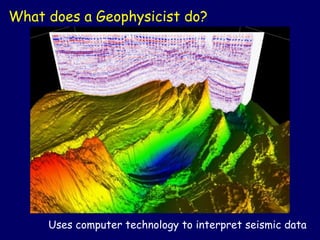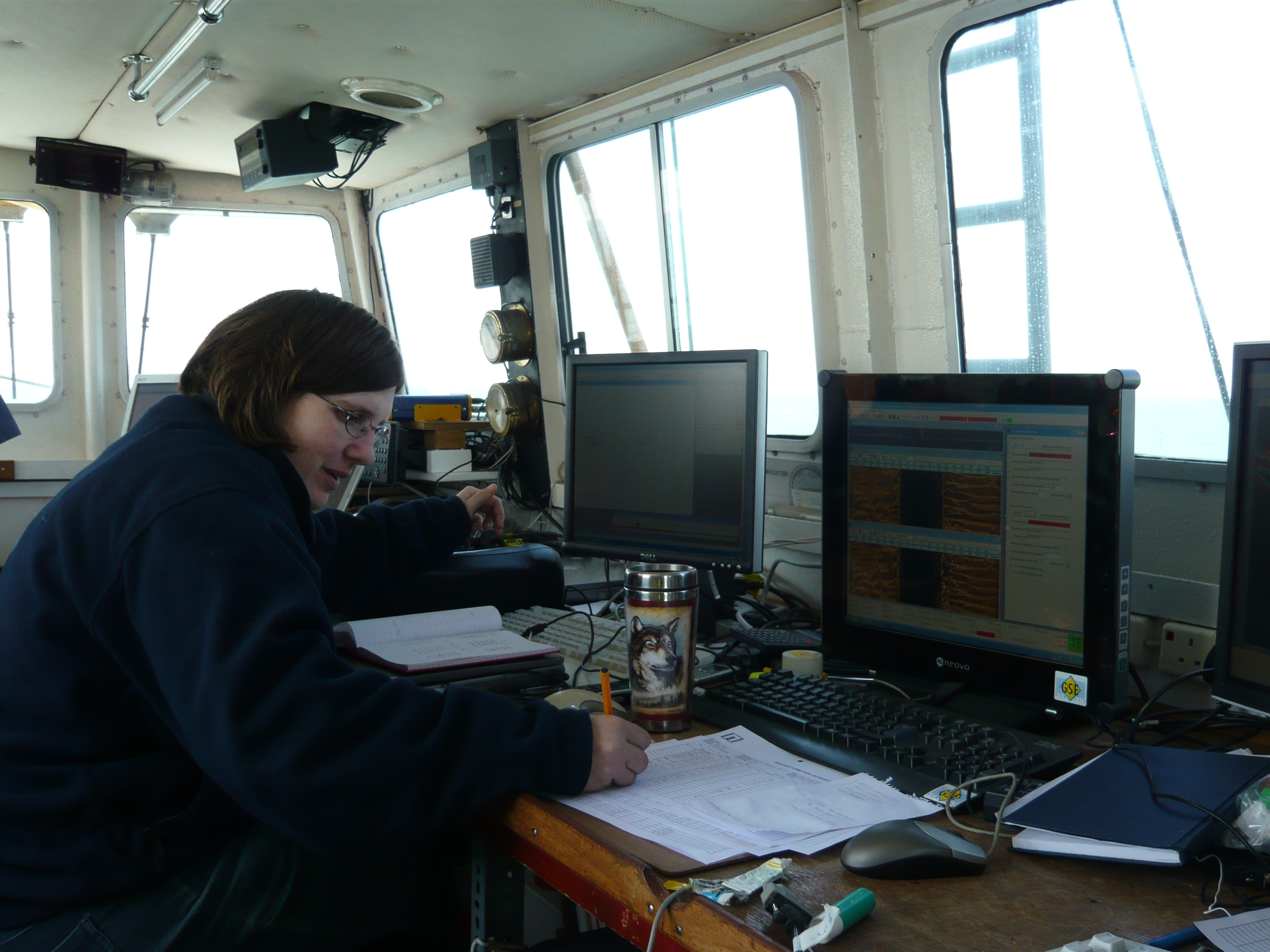All Categories
Featured
Table of Contents
How To Become A Geophysicist in Bentley WA 2022

The main design for the radial structure of the interior of the Earth is the preliminary recommendation Earth model (PREM). Some parts of this model have actually been updated by recent findings in mineral physics (see post-perovskite) and supplemented by seismic tomography. The mantle is generally composed of silicates, and the limits between layers of the mantle follow stage transitions.

This makes plate tectonics possible. Schematic of Earth's magnetosphere. The solar wind circulations from left to right. If a world's electromagnetic field is strong enough, its interaction with the solar wind forms a magnetosphere. Early area probes mapped out the gross dimensions of the Earth's magnetic field, which extends about 10 Earth radii towards the Sun.
Inside the magnetosphere, there are reasonably dense areas of solar wind particles called the Van Allen radiation belts. Geophysical measurements are generally at a specific time and location.
Geophysics Jobs in Palmyra Australia 2021
A three-dimensional position is computed using messages from four or more noticeable satellites and referred to the 1980 Geodetic Referral System. An option, optical astronomy, combines huge coordinates and the local gravity vector to get geodetic coordinates. This technique only offers the position in two coordinates and is harder to use than GPS.
Gravity measurements became part of geodesy since they were needed to associated measurements at the surface of the Earth to the referral coordinate system.
Sea level can also be measured by satellites utilizing radar altimetry, contributing to a more accurate geoid. In 2002, NASA introduced the Gravity Recovery and Environment Experiment (GRACE), wherein 2 twin satellites map variations in Earth's gravity field by making measurements of the range between the two satellites utilizing GPS and a microwave varying system. Satellites in space have actually made it possible to gather information from not just the visible light region, however in other areas of the electro-magnetic spectrum. The planets can be identified by their force fields: gravity and their magnetic fields, which are studied through geophysics and area physics. Determining the modifications in velocity experienced by spacecraft as they orbit has actually allowed fine information of the gravity fields of the planets to be mapped.
Standard And Guidance For Archaeological Geophysical ... in Walliston Australia 2021

Because geophysics is worried with the shape of the Earth, and by extension the mapping of functions around and in the planet, geophysical measurements consist of high precision GPS measurements. Once the geophysical measurements have actually been processed and inverted, the translated outcomes are plotted utilizing GIS.
Many geophysics companies have created internal geophysics programs that pre-date Arc, GIS and Geo, Soft in order to satisfy the visualization requirements of a geophysical dataset. Exploration geophysics is applied geophysics that typically uses remote picking up platforms such as; satellites, airplane, ships, boats, rovers, drones, borehole picking up equipment, and seismic receivers.
For example, aeromagnetic information (airplane gathered magnetic information) gathered utilizing conventional fixed-wing airplane platforms must be fixed for electromagnetic eddy currents that are produced as the airplane moves through Earth's magnetic field. There are also corrections related to modifications in determined possible field strength as the Earth rotates, as the Earth orbits the Sun, and as the moon orbits the Earth.
What Is Geophysics? in Menora Western Australia 2021
Signal processing includes the correction of time-series information for undesirable noise or mistakes introduced by the measurement platform, such as aircraft vibrations in gravity data. It also includes the reduction of sources of sound, such as diurnal corrections in magnetic information., meteorology, and physics.
The magnetic compass existed in China back as far as the 4th century BC. It was used as much for feng shui when it comes to navigation on land. It was not until good steel needles could be forged that compasses were used for navigation at sea; prior to that, they might not maintain their magnetism enough time to be useful.
By looking at which of 8 toads had the ball, one could figure out the instructions of the earthquake.'s (1600 ), a report of a series of meticulous experiments in magnetism.
What Does A Geologist Do? in Mount Hawthorn Australia 2020
In 1687 Isaac Newton published his, which not just laid the foundations for classical mechanics and gravitation Likewise discussed a range of geophysical phenomena such as the tides and the precession of the equinox. The very first seismometer, an instrument efficient in keeping a continuous record of seismic activity, was constructed by James Forbes in 1844. Dietmar; Sdrolias, Maria; Gaina, Carmen; Roest, Walter R. (April 2008). "Age, spreading rates, and spreading asymmetry of the world's ocean crust". Geochemistry, Geophysics, Geosystems. 9 (4 ): Q04006. Bibcode:2008 GGG ... 9. 4006M. doi:10. 1029/2007GC001743. S2CID 15960331. "Earth's Inconstant Electromagnetic field". science@nasa. National Aeronautics and Area Administration. 29 December 2003. Recovered 13 November 2018.
Runcorn, S.K, (editor-in-chief), 1967, International dictionary of geophysics:. Pergamon, Oxford, 2 volumes, 1,728 pp., 730 fig Geophysics, 1970, Encyclopaedia Britannica, Vol. Intro to seismology (2nd ed.).
Latest Posts
Geophysical Surveys Definition & Meaning In Stock ... in Murdoch Oz 2023
About Environmental Geophysics in Middle Swan Aus 2022
Geophysicist Job Description in Australia 2021